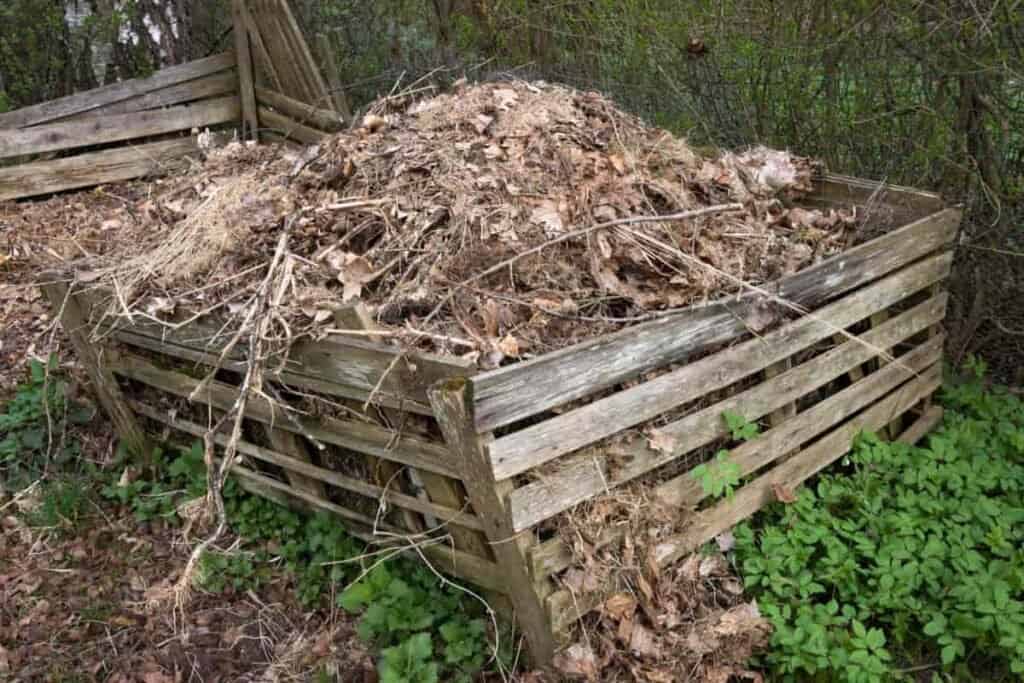I’ve been an armchair gardener for a long time. That’s why I can’t help but snicker when I hear some of you guys worrying out loud about all those leaves you’ve got piled up and the hard job ahead of composting them.

Easy Way of Composting
Maybe it’s all in knowing how to do it the easy way.
I know several ways to do it with minimum elbow grease and get a quick compost too. But my pet way kills several other garden chores at the same time.
I found out long ago there’s work to dig in chemical fertilizer. So now I just take the fertilizer I’d ordinarily dig into the soil and toss it on my compost pile.
This wipes out 1 whole muscle-building operation!
Using of Chemical Fertilizer
Usually, I use about 200 lbs of chemical fertilizer for some 2,000 lbs of kitchen waste, clippings, leaves, and such.
I simply spread out the waste in a foot-deep blanket on the ground and sprinkled the fertilizer over it.
I also throw on about 6 lbs of organic activator and 20 lbs of lime, gypsum, or mineral phosphate.
Rain Watering Over Regular Watering
Then I sit down. You can water it. I wait until it rains.
After the rain, I rouse myself and rake the spread-out mixture into a 3 1/2-foot-high plateau. Then I sit down again and watch my compost go to work.
Kitchen Waste is Essential
In a week or 10 days, if I’ve used lots of kitchen waste, my compost’s made a good start in decomposing and is ready to use as a mulch.
(If the compost mostly leaves, I wait a full 3 weeks.)
Then I spread the compost mulch around my ornamentals. What’s left goes on the vegetables. There’s just one “however.”
Sensitive Plants: Fall-Fertilizing
In the case of sensitive plants, whose natural dormancy would be delayed by fall-fertilizing with the result that they’d be liable to winter injury, a plain mulch without the fertilizer is better.
Come spring, I don’t bother digging up the vegetable patch—just make my rows and plant. And I never have to remove my quick-humus mulch from around the bushes.
Non-Burning Form of Fertilizer
What’s more, the fertilizer I put in last fall is still there and in a safer, non-burning form.
And for my original 200 lbs. I’ve ended up with almost a ton of rich mulch that will be the best kind of long-lasting, soil-building fertilizer.
Yep, it pays to be lazy.
44659 by Peggy Westbrook